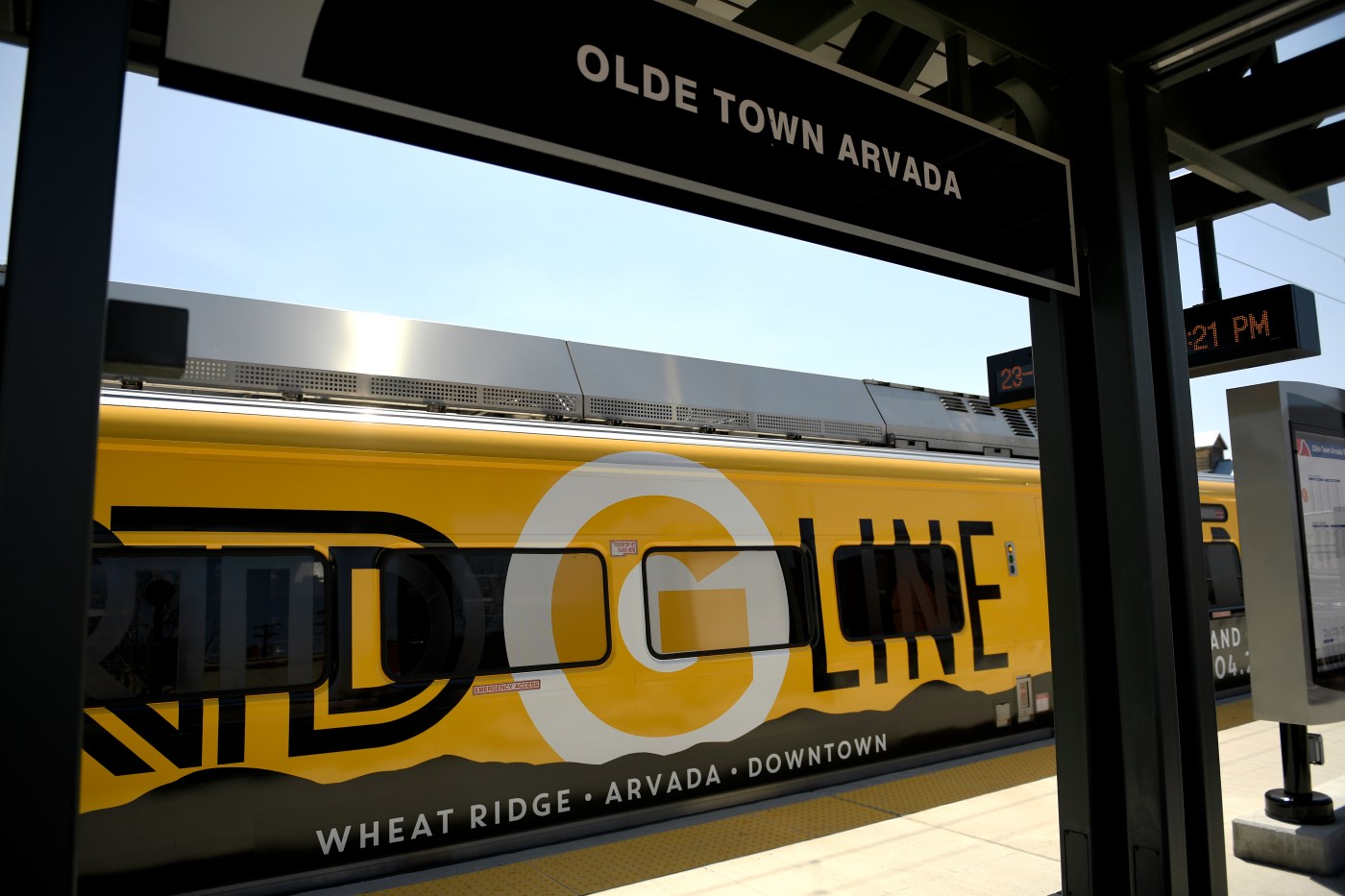Regional Transportation District (RTD) directors voted Tuesday night to ban the bright wrap-around advertisements that partially block views out windows on metro Denver buses and trains. The decision aims to give riders the same opportunity to see their surroundings as people in cars and make public transportation more appealing.
The prohibition means losing revenue—RTD officials calculated that window-blocking ads brought in $786,000 between April and September this year, at a time when the agency is grappling with financial constraints.
Thousands of tiny holes, each half the size of a frozen pea, spread across RTD’s adhesive vinyl ad wraps allow riders enough visibility to know whether they’re nearing stops. However, the ads obscure landscapes and prevent would-be riders outside buses and trains from assessing safety inside before boarding.
“It is worth the trade-off,” said RTD Director Brett Paglieri, who campaigned for the ban as a step to help riders savor beauty. He added that selling out RTD windows for commercial messaging “assumes us to be second-class citizens. We are equal to people who choose to drive private vehicles.”
“When you cannot see out the windows clearly, it denigrates the experience of riding. We want our riders to know we care about their experience,” Paglieri emphasized.
The elected directors approved the ban in a 9-4 vote.
In other actions, RTD directors also voted Tuesday to prepare for a restart of special bus service to Denver Broncos and Colorado Rockies games downtown next year, aiming to attract more riders.
Meanwhile, RTD officials are facing projected revenue shortfalls despite managing a record $1.2 billion budget, expected to increase to more than $1.3 billion next year. RTD executives have indicated that services may have to be cut to manage costs based on financial forecasts, as RTD’s primary source of revenue—sales taxes paid by residents across eight counties—is expected to decrease.
The issue of ad wraps has arisen in recent years as directors heard rider complaints.
“The ads are truly obnoxious. They obliterate a full view of your surroundings,” said longtime RTD employee and regular rider Bob Brewster, 79. “Looking out those tiny little holes in the ad wraps doesn’t give you the full picture. It limits your vision.”
“Being able to see out the window is an enjoyable part of riding public transit,” Brewster added. He also expressed that using buses and trains for commercial messaging “uglifies our public transit vehicles.”
RTD has displayed ads on buses and trains for more than 50 years. However, RTD Director Michael Guzman, opposing the ban, argued it will cut revenue needed to maintain service. “RTD is not about the vibes. RTD is about moving people,” he said.
The grassroots advocacy group Greater Denver Transit welcomed the decision.
“People who ride public transportation deserve the basic human dignity of being able to look out the window without obstruction,” said the group’s co-founder, James Flattum.
“The revenue RTD has generated from ad space on vehicle windows over the last decade has been so small that it is effectively irrelevant to supporting RTD’s operations. But it comes at a dear cost to the rider experience,” Flattum added.
RTD officials said their customer satisfaction surveys have not included questions about wrap-around ads since 2012.
A Greater Denver Transit survey of riders found that 84% felt ads covering windows degraded their transit experience.
Ads that cover windows have been placed on 493 buses (out of 955 in the fleet), 128 light rail trains (out of 201), and 48 commuter rail trains (out of 66), according to agency records.
RTD officials reported ad revenues totaling $4.9 million in 2023, $4.4 million in 2024, and $3.1 million this year through September, the bulk of it from ads that do not cover windows and will continue to be sold.
Recently, the agency terminated a contract with Lamar Advertising and has received bids from competitor agencies as part of an effort to rethink ads as a source of revenue.
Public transit officials in St. Louis, Missouri, and Albuquerque, New Mexico, have also decided to remove ads from the sides of buses and trains.
“Advertising revenue is used for RTD’s general operations,” RTD officials said in a statement relayed by spokeswoman Pauline Haberman. “Any potential reduction in revenue will need to be considered and accounted for in the budget.”
https://www.denverpost.com/2025/10/29/rtd-bans-ad-wraps-windows/



